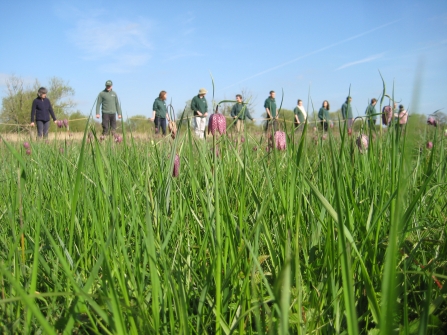Restoring nature in the UK – one of the most nature-depleted countries in the world – has become harder than ever during the pandemic. At the same time, people are seeking solace in nature to relieve the hardships caused by lockdown.
Many Trust staff are furloughed, and vital conservation work has had to be put on hold – leading to an explosion of invasive non-native species, deterioration of rare wildflower meadows, stalled wildlife reintroductions and potential loss of species such as dormice from some areas.
Here in the UK the natural world has co-evolved with humanity over thousands of years. The majority of the species we cherish, such as bluebell woodlands, wild flower meadows full of butterflies and lakes with wintering wildfowl only support wildlife because they are managed by people, often using centuries’ old techniques. And it’s this traditional management that is threatened by the coronavirus, for with conservationists and wildlife champions under lockdown restrictions much of this important management work will be unable to take place.
“The lockdown means that teams of dedicated volunteers are unable to work on nature reserves; small or remote reserves are too difficult to graze and our splendid hay meadows, such as Iffley Meadows in Oxford with its ionic snakes-head fritillary, may struggle to be cut for hay,” says Debbie Lewis, Reserves Ecology Manager at Berkshire, Buckinghamshire and Oxfordshire Wildlife Trust (BBOWT).

